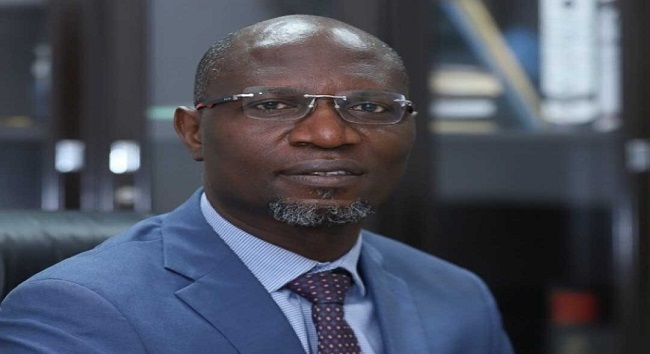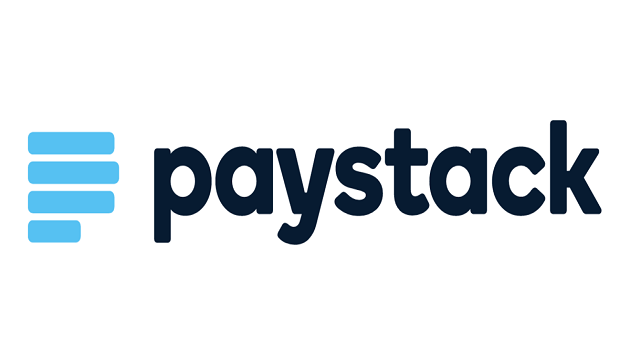E-Financial
NIBSS Partners PFS To Launch National Automated Cheque Clearing System

NIBSS collaborates with PFS to launch National Automated Cheque Cheque Clearing System
Nigeria Inter-Bank Settlement System [NIBSS] and Precise Financial Systems [PFS] have collaborated to unveil a new National Automated Clearing System [NACS], which allows all the Deposit Money Banks in the country to clear cheques within hours.
The banks have been test-running the infrastructure for 11 weeks ago and a total of N5 trillion worth of cheques from 10 million transactions has been processed through the new platform.
At the post go-live session in Lagos with representatives of the banks, Managing Director of NIBSS, Mr. Ade Shonubi, explained that the institution had been on the project for over 18 months. He added that the infrastructure would allow all the banks to achieve several payment and non-payment transactions.
NIBSS’ boss said that as at today there are four clearing sessions. According to him, the advantage of having multiple clearing sessions was that the net amount against each bank is smaller so that risks are managed.
“With the new system, a cheque can be cleared within six hours, four hour or at whatever duration we agree”, he said.
The Managing Director of PFS, the software firm behind NACS, Dr. Yele Okeremi at the session said the process of clearing cheques in all Nigerian banks has been simplified with the launch of NACS and that the successful completion of the project has the door for more Nigerian firms to take on more national challenges.
Okeremi commended the collaborative effort that exists between NIBSS and PFS, saying that the partnership has given birth to the new system that “allows bank customers to experience the benefits of shorter cheque clearing cycles, as it reduces operational cost of the banks because the clearing departments of the bank can work smarter and close earlier”.
Expatiating on the reasons for the innovation, he said NIBSS needed a future proof system that would help the institution to realize its vision of a faster and more efficient clearing system that would be less resource intensive and accommodate various new requirements and practices in the clearing system.
“NIBSS wanted a system that can be incorporated with the Bank Verification Number [BVN]. They also wanted a situation where they would have a session-less system that would always be online such that banks could transmit their transactions as soon as they happen rather than a batch system that opens up at specific times and closes after stipulated time frames”, he said.
Head, Domestic Payments and Collections, Union Bank, Mr. Kolawole Aminu, described the new platform as user-friendly.
He added that “over N5 trillion that has been processed on the new platform just within 11 weeks. We are talking of over 10 million in terms of the volume of cheques. That tells you how much we do with this mode of payment.”
Okeremi said, “As MD of NIBSS have explained, what we have given the country is an infrastructure. It is a switch. It can switch anything. I look forward to when that infrastructure can be used for other transactions. When a country talks about independent, sovereignty, these are some of the things that matter. How much of your services are internal to you? Are you breathing through the nose of other countries and you claim you are independent? These are some of the things that make one happy and we can say that Nigeria’s problems are being gradually solved. There is a big road ahead.”
He said that whenever Nigerian government request foreigners to “do what we could have done for ourselves, we export prosperity and import poverty,” saying that “there is a national and sovereign security issue.
“If you go to any developed country, they would not allow foreigners to have access to certain critical infrastructure in their country. So why do we keep exposing our country to such sovereign risks. I think the fact that NIBSS has led the way in this direction, I expect other organizations to follow suit”, he said.
He expatiated that the Nigerian economy would benefit immensely from the new solution because it is “conceived and developed by Nigerians thereby saving some capital flight for the country”.
E-Financial
SEC Hikes Minimum Capital Requirements for Market Operators After a Decade

The Securities and Exchange Commission (SEC) has revised the minimum capital applicable to all categories of regulated capital market entities after 10 years.

The minimum capital review, according to the SEC, is informed by the need to strengthen market resilience, enhance investor protection, align capital adequacy with the evolving risk profile of market activities, and ensure that regulated entities possess sufficient financial capacity to discharge their obligations in a sustainable manner.
“The revised Minimum Capital framework seeks to: enhance the financial soundness and operational resilience of market operators; align capital requirements with the scope, complexity, and risk exposure of regulated activities; promote market stability and systemic risk mitigation; and support innovation and orderly development of new market segments, including digital assets and commodities markets,” SEC said in a January 16 circular to market operators.
The SEC circular was sent to all entities regulated by the Commission, including but not limited to core and non-core capital market operators; market infrastructure institutions; capital market consultants; financial technology (FinTech) operators; Virtual Asset Service Providers (VASPs); and Commodity market intermediaries.
All affected entities are required to comply with the revised Minimum Capital Requirements on or before June 30, 2027, the circular said.
“Entities that fail to meet the prescribed requirements within the stipulated timeline shall be subject to appropriate regulatory sanctions, including suspension or withdrawal of registration, as may be determined by the Commission,” SEC said.
Tier-1 Portfolio Managers (Full Scope) involved in the management of Collective Investment Schemes (CIS) and Alternative Investment Funds (Private Equity, Venture Capital, Infrastructure Funds etc) above N20 billion Net Asset Value (NAV), or discretionary and Non-Discretionary Private Portfolio Management Services above N20 billion Assets under Management (AuM), or exposure to foreign instruments up to 40 percent of the NAV are now required to have a minimum capital of N5 billion as against N150 million.
“Any Fund and Portfolio Manager with NAV/AuM of more than N100billion should have a minimum of 10 percent of the NAV/AuM as capital,” SEC added.
For the Tier-2 fund/portfolio managers (Limited Scope) who are in the business of management of Collective Investment Schemes with limited pooled fund creation of not more than 10 times the required capital (N20 billion) on Net Asset Value (NAV), or discretionary and non-discretionary private portfolio management services of not more than N20 billion, or those exposure to foreign instruments of not more than 20 percent of the NAV, now require N2 billion as minimum capital as against low of N150 million.
Likewise, broker-dealers whose services include: client execution, proprietary trading, margin/securities lending and advisory services no longer require N300 million minimum capital to operate but N2 billion.
The SEC said the minimum capital review from 2015 low is in line with its mandate under the Investments and Securities Act 2025 to regulate and develop the Nigerian capital market.
Also, Tier 1 issuing houses who do non-interest finance services, advisory & arrangement services but no underwriting now require N2 billion as against N200 million; while Tier 2 –issuing houses with underwriting and offers a ‘one-stop-shop’ for issuers, provides underwriting services, and renders advisory and product development services require N7 billion minimum capital for this business as against N200 million.
Also, the minimum capital requirement for brokers (client execution only) has been jacked up from N200 million to N600 million, while that of dealers (proprietary trading only) has been moved from N100 million to N1 billion.
Broker-Dealers’ (client execution, proprietary trading, margin/securities lending and advisory services) has been raised from N300 million to N2 billion, while Sub-Brokers’ (Digital) from N10million to N100million; Sub-Broker (Corporate) has been increased from N10million to N50 million. Also, sub-brokers’ (Individual) now need N10 million minimum capital for the business as against N2 million while inter-dealer brokers require N2 billion as against N50 million.
E-Financial
SEC Partners Police in Nationwide Crackdown on Ponzi Schemes, Crypto Frauds

Securities and Exchange Commission (SEC) and the Nigeria Police Force have forged an alliance against illegal scheme operators, investment frauds, and cryptocurrency frauds in a bid to protect the hard-earned savings and the financial dreams of the Nigerian people.

Dr Emomotimi Agama, director-general of the SEC, stated this during a meeting with Kayode Egbetokun, Inspector General of Police, held in Abuja.
Agama said the SEC, as the sentinel at the gate of Nigeria’s formal capital markets, had the mandate to protect investors, maintain fair, efficient, and transparent markets, and promote the growth of a vibrant economy built on trust, which is done by setting rules, licensing operators and market surveillance.
He, however, stated that the Commission faced adversaries who operate in the shadows, outside regulated gates by exploiting the trust of people and promising miraculous returns such as 200 per cent in 30 days.
“Currently, there is a gap, a seam between identification and enforcement that these scammers exploit. Today, we aim to close that gap permanently. Therefore, we propose a robust, institutionalised collaboration with the following pillars: Joint Intelligence and Operations Task Force: Capacity Building and Knowledge Transfer; Streamlined Processes for Enforcement and National Public Awareness Campaign,” he stated.
The SEC DG advocated, “the establishment of a dedicated SEC-NPF team that combines market intelligence, forensic accounting, and understanding of complex financial schemes with investigative and intelligence-gathering capabilities. This team will be the rapid-response unit to new frauds.”
Agama also sought the permission of the IGP to go into a Memorandum of Understanding with the Cyber Security Unit of the Police Force in a bid to ensure that cyberspace is safe for all Nigerians
In his response, the IGP Kayode Egbetokun assured the SEC team that the Nigerian police Force is ready to collaborate with the Commission, strengthen partnership in all the ways possible, and ensure that the Commission achieves its aims.
He said, “Your role in the Securities and Exchange Commission is very crucial to the Nigerian Economy, and with our supervision and support from the government, we will ensure economic recovery and growth. If the police unit in SEC is strengthened, it is going to make such an impact on your enforcement drive. What you said speaks so much to your determination to ensure effective drive in the Capital market, and when we can achieve effective enforcement, it comes with so many benefits.
Egbetokun also congratulated the Commission on the recent achievement of the N100 trillion market capitalisation mark, adding that it will aid economic growth and development.
E-Financial
Paystack Expands Beyond Payments into Banking

Nigerian fintech giant, Paystack has taken its boldest step yet beyond payments, acquiring Ladder Microfinance Bank. The fintech giant has quickly rebranded its new acquisition as Paystack Microfinance Bank (MFB) in a strategic shift that could reshape how African businesses access credit, deposits, and embedded financial services.

After nearly a decade building the backbone of online payments in Nigeria, the deal gives Paystack regulatory cover to hold deposits, lend directly to businesses and offer banking-as-a-service products.
More importantly, Paystack’s chief operating officer, Amandine Lobelle, highlighted that it allows the company to exert greater control over the trillions of naira that already flow through its platform every month, turning transaction data into a powerful engine for credit and treasury products.
“After 10 years of building payment infrastructure and going deep, we realised that businesses needed more than just getting paid to grow. We wanted to leverage the expertise that we have built over the last decade to continue to address some of the pain points that businesses have,” said Lobelle.
Paystack MFB will operate as a sister company to its payments business, initially focusing on working capital loans, merchant cash advances, overdrafts and term loans for small and medium-sized enterprises.
By using real-time payment data to underwrite loans, Paystack believes it can offer faster approvals and more accurate risk pricing than traditional lenders, directly tackling Nigeria’s estimated $32 billion small business financing gap.
For Paystack, founded in 2016 and acquired by Stripe in 2020, the move marks a strategic evolution from being just a payments processor to becoming a core part of the financial operating system for African businesses.
Today, Paystack supports more than 300,000 businesses across Nigeria, Ghana, and South Africa and has become one of Africa’s most trusted fintech infrastructure providers.
The banking licence is a game-changer as payments, once Paystack’s main growth engine, are increasingly commoditised across Africa. Lending, deposits and treasury services offer deeper margins, stickier relationships and long-term sustainability.
By layering banking services on top of payments, Paystack is betting that infrastructure depth will outperform flashy consumer scale.
However, the move also throws the Nigerian-born fintech giant into fierce competition with digital -first lenders and neobanks such as Moniepoint, Kuda, OPay and PalmPay, which already operate at massive scale. Still, Paystack’s strength lies in its merchant-first focus and developer-friendly APIs.

 E-Financial2 days ago
E-Financial2 days agoPaystack Expands Beyond Payments into Banking

 E-Financial2 days ago
E-Financial2 days agoSEC Partners Police in Nationwide Crackdown on Ponzi Schemes, Crypto Frauds

 E-Business2 days ago
E-Business2 days agoNigeria Targeted with 4,622 Cyber-attacks Per Week in December 2025

 General News2 days ago
General News2 days agoEFCC to Use Space Technology to Boost Asset Tracking, Investigations

 E-Financial2 days ago
E-Financial2 days agoFG Halts Tax Guidelines Amid Uncertainty Over Final Laws – Oyedele

 E-Financial2 days ago
E-Financial2 days agoPaystack Buys Microfinance Bank, Enters Nigeria Banking Arena

 News2 days ago
News2 days agoFG Directs Banks, Fintechs to Remit VAT on Service Fees

 General News2 days ago
General News2 days agoHow to Stay Safe Online During Sales Periods























